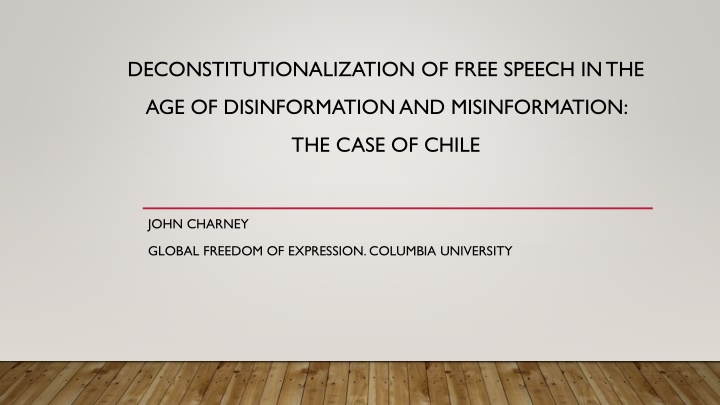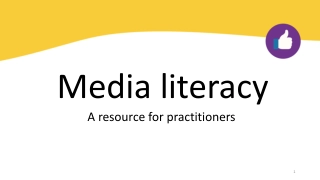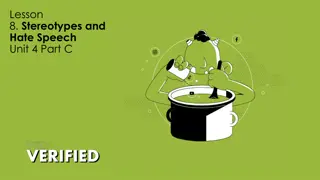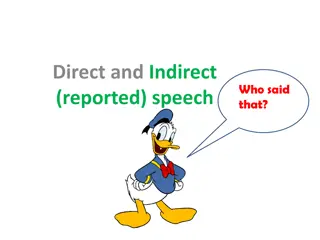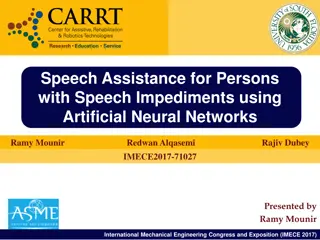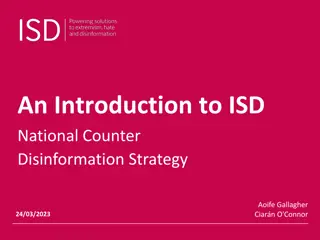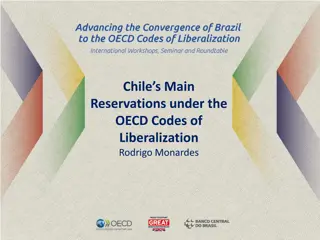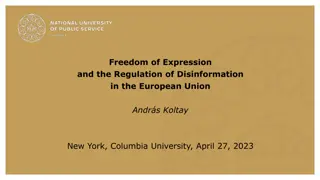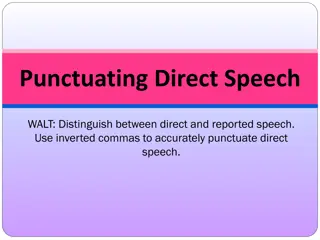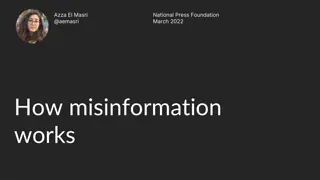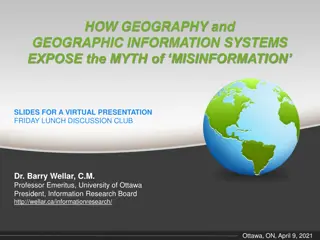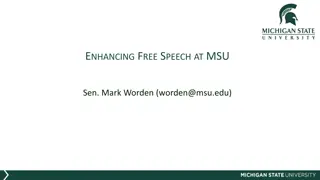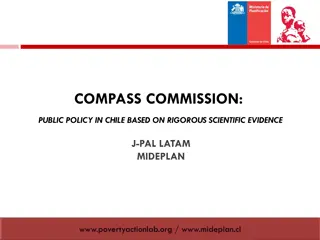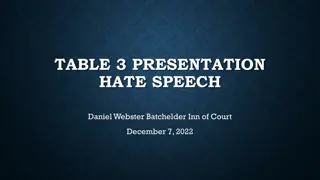Deconstitutionalization of Free Speech in the Age of Disinformation and Misinformation: The Case of Chile
This chapter explores the impact of disinformation and misinformation on free speech in Chile, focusing on the erosion of constitutional safeguards. It analyzes the role of the legal order in responding to disinformation, the manipulation of online communication rules, and the effects of technical transformations on the public sphere. The chapter also delves into the authoritarian constitution of Chile and the challenges faced during the democratic transition.
Download Presentation

Please find below an Image/Link to download the presentation.
The content on the website is provided AS IS for your information and personal use only. It may not be sold, licensed, or shared on other websites without obtaining consent from the author.If you encounter any issues during the download, it is possible that the publisher has removed the file from their server.
You are allowed to download the files provided on this website for personal or commercial use, subject to the condition that they are used lawfully. All files are the property of their respective owners.
The content on the website is provided AS IS for your information and personal use only. It may not be sold, licensed, or shared on other websites without obtaining consent from the author.
E N D
Presentation Transcript
DECONSTITUTIONALIZATION OF FREE SPEECH IN THE AGE OF DISINFORMATIONAND MISINFORMATION: THE CASE OF CHILE JOHN CHARNEY GLOBAL FREEDOM OF EXPRESSION. COLUMBIA UNIVERSITY
AIMSAND SCOPE OFTHE CHAPTER How does the legal order responds to the phenomenon of D&M? Who defines the rules of online communication? The case of Chile: the democratic paradox Political transition Technological transition Structure of the chapter: Disinformation in the constitutional crisis Disinformation and the legal order The technical transformation of the public sphere The effects in the legal order: deconstitutionalization of free speech
DISINFORMATION IN THE CONSTITUTIONAL CRISIS Esta foto de Autor desconocido est bajo licencia CC BY-NC-ND
DISINFORMATIONAND THE LEGAL ORDER: THE AUTHORITARIAN CONSTITUTION [i]t is not risky to say that it is difficult to find another nation in the world that has had to face with greater persistence a campaign of disinformation such as the one Chile has suffered. It is therefore interesting to reflect on the reasons that have led to the planning and maintenance of a real system aimed at disorienting, sowing doubt and suspicion, hiding the truth and conditioning the reactions of national and world opinion . (Poblete, 1988) Esta foto de Autor desconocido est bajo licencia CC BY-ND
DISINFORMATIONAND THE LEGAL ORDER: THEAUTHORITARIAN CONSTITUTION Art. 19 N 4: an infringement of this precept committed through mass media and consisting of the imputation of a false fact or act, or one that unjustifiably causes harm or discredit to a person or their family, shall constitute a criminal offense . The concept of freedom of the press, as it emanated from the postulates of the French Revolution, is today obsolete, and its validity is incompatible with the government of peoples and public tranquility (J. Alessandri, 1978). Esta foto de Autor desconocido est bajo licencia CC BY-ND
DISINFORMATION IN THE DEMOCRATIC LEGAL ORDER The transition to democracy and the democratic paradox How can it be explained: The democratic legal order The technical transformation of the public sphere The normative effects of technological transformations Esta foto de Autor desconocido est bajo licencia CC BY
THE DEMOCRATIC LEGAL ORDER Free speech as a constitutional right Limits: Confiugured by law (Principio de reserva legal) Configured by other constitutional rights (the horizontal effect) Normative guarantees Protection of the esential content Special quorums for laws that Judicial review Right to rectification
THE DEMOCRATIC LEGAL ORDER Disinformation in the PressAct (2001) Libel through mass media Special rules for the defense of justification (public interest): the relevance of truth in the system Exercise of public functions Proceedings that with the consent of the interest party, have been captured by the media; Professions or trade of real public interest Crimes and midemeanours
THETECHNICALTRANSFORMATION OFTHE PUBLIC SPHERE: FROMANALOGUETO DIGITAL Communications regulation In the analogue public sphere: dyadic model State/ speakers & publishers The law prevents undue state interference and private s abusive or ilegal speech Courts solve disputes where free speech is involved In the digital public sphere: pluralist model Intermediaries (non publishers) Instantaneousness Transnational Flow Anonimity Use ofArtificial Inteligence
SECTION 230 CDA (c) Protection for ''Good Samaritan'' blocking and screening of offensive material (1) Treatment of publisher or speaker No provider or user of an interactive computer service shall be treated as the publisher or speaker of any information provided by another information content provider. (2) Civil liability No provider or user of an interactive computer service shall be held liable on account of - (A) any action voluntarily taken in good faith to restrict access to or availability of material that the provider or user considers to be obscene, lewd, lascivious, filthy, excessively violent, harassing, or otherwise objectionable, whether or not such material is constitutionally protected
DECONSTITUTIONALIZATION OF FREE SPEECH: THE CASE OF CHILE How come the rules of S 230 CDA have altered the legal order in Chile: The press act 2001: are intermediaries media for the purposes of the PressAct? The legal order regulating online communications in Chile is subject to the terms of S 230 CDA. No application of PressAct The principles of legality, horizontal effect
